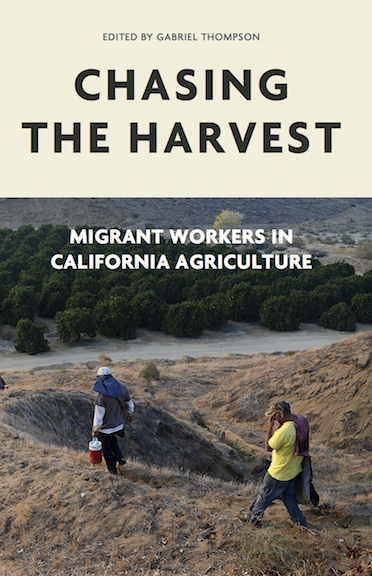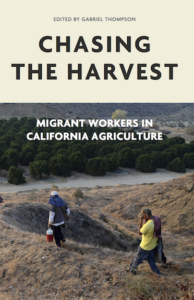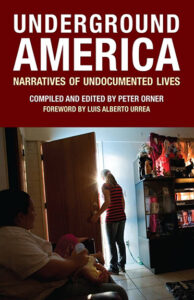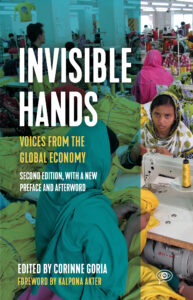The Voice of Witness book series amplifies the stories of people directly impacted by—and fighting against—injustice. We use an oral history methodology that combines ethics-driven practices, journalistic integrity, and an engaging, literary approach.
The books explore issues of inequity and human rights through the lens of personal narrative. Each project aims to disrupt harmful narratives by supporting historically marginalized or silenced communities to tell their own stories in their own words.
Book clubs are useful tools for engaging and interacting with these oral histories and the issues they highlight. Find our handout with guidance on planning and facilitating one here.
Use the questions below to start a book club for Chasing the Harvest: Migrant Workers in California Agriculture.

Discussion Questions:
- In the introduction to the book, Gabriel Thompson quotes one of the narrators, Roberto Valdez, who says, “Look at my hands. These are the hands that feed the country.” Dissect this quote. What does Roberto mean? What obligations do we have, if any, to the people
whose hands feed the country? - Narrator Oscar Ramos remembers adults playing jokes on each other by yelling out “La migra!” or “INS!” Oscar describes the panic that followed; he would run and hide under the bed, fearing being detained and deported. How do you think this feeling of pervasive and constant anxiety impacts undocumented farmworkers physically, mentally, and emotionally?
- Think about Oscar’s impact on his student, Jose. Why do you think their relationship was so important?
- At his job, Jose was made to spray crops with chemicals that were toxic to his health because his boss wanted to preserve as many crops as possible and maximize the farm’s output. What does this say about the way Jose’s boss viewed his workers? Does this have any larger implications as to how workers are viewed and treated today?
- Jose says that he is protected by the union. What are the goals and purposes of workers’ unions? Do you think they are necessary? Why or why not?
- Ismael’s teenage years have largely been spent working on farms. What advantages and disadvantages does this give him over teenagers who do not work?
- In her narrative, Maria talks about the injustices that farmworkers faced when supervisors would pay workers less than what they were owed. She says that “pretty much, you had to take whatever they paid you.” How do you think Maria and other farmworkers might have been impacted by this lack of agency?
- Two of the narrators, Maricruz and Juana, fear reporting their sexual and physical abuse because they are scared of retaliation or deportation. What, if anything, can be done to prevent this abuse and help farmworkers who are in this position?
- What are some of the more surprising themes or ideas that appear in Chasing the Harvest? Did your ideas and conceptions about farmworkers change at all after reading the book?



